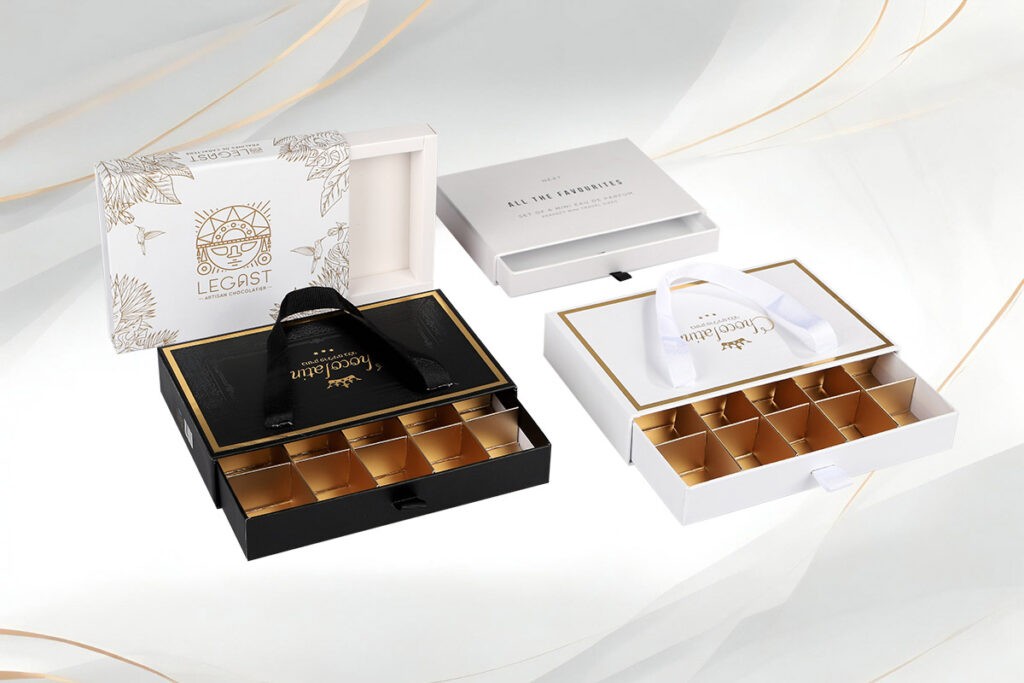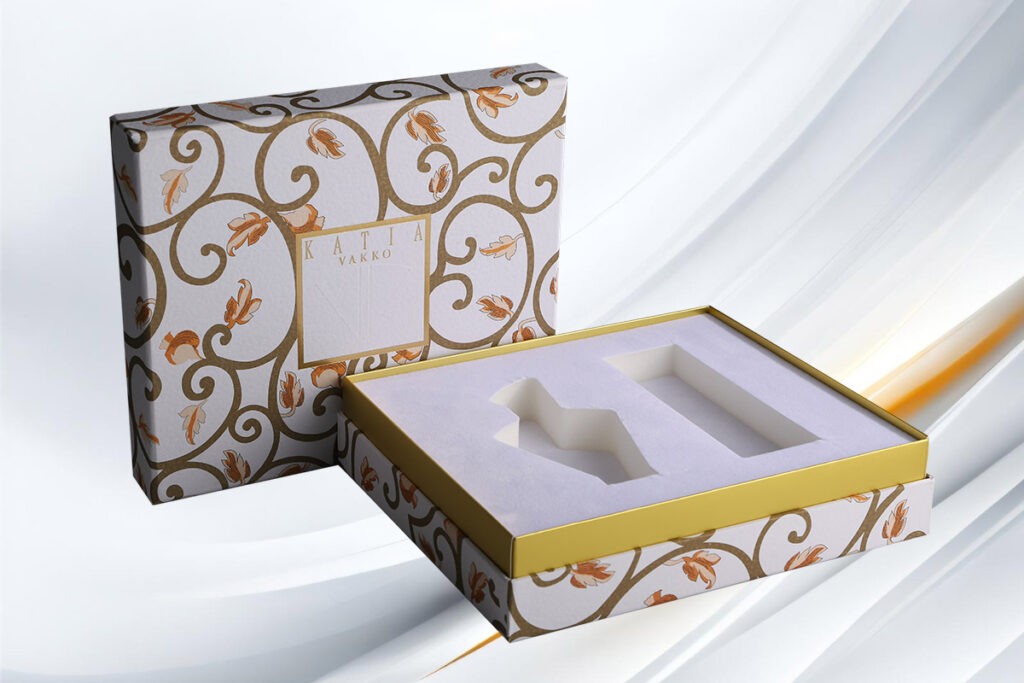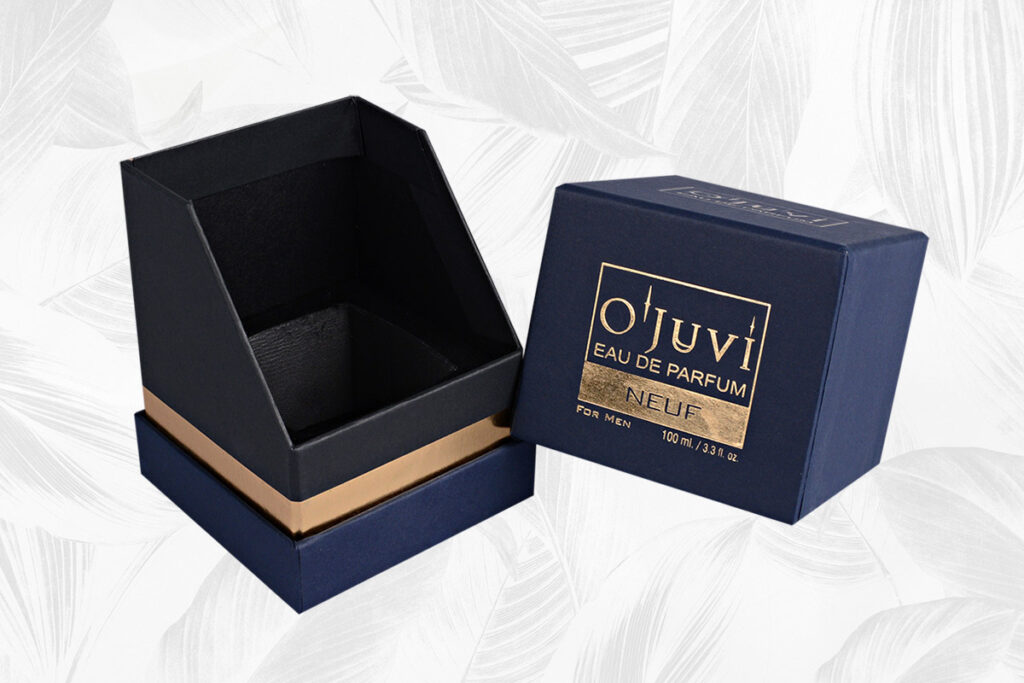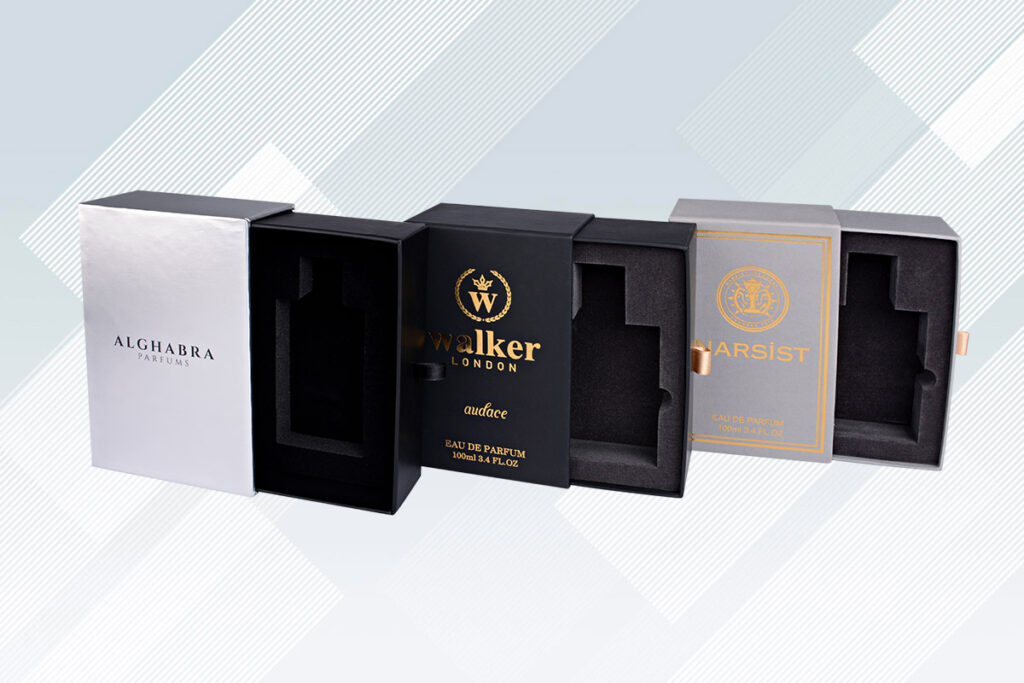What Are Rigid Boxes?
Rigid boxes, commonly referred to as “Rigid Boxes” in English, signify a type of packaging box typically made from cardboard material, featuring foldable and rigid characteristics. These boxes are often utilized for transportation and storage purposes and can be custom-produced in various sizes and designs according to specific needs.

Cardboard, being a durable material, is generally paper-based. Its foldability allows for flat storage, occupying minimal space when not in use, providing an advantage in shipping and storage processes.
Rigid boxes usually boast a design that requires no assembly. Users can easily fold and compress the box according to their needs, enabling quick utilization.
Due to their lightweight and cost-effectiveness, rigid boxes find widespread usage in various industries such as food, textiles, electronics, and more, particularly for packaging and transporting products.
Advantages of Rigid Boxes
Offer Several Advantages:
- Ease of Storage: The foldability feature allows flat storage, saving storage space.
- Durability: Cardboard material ensures sufficient strength for the safe transportation of products.
- Lightweight: Its lightweight structure reduces transportation costs and facilitates the shipping process.
- Environmentally Friendly: Cardboard, being recyclable and eco-friendly, is a sustainable packaging option.
- Cost Efficiency: Cardboard material is generally affordable, providing a cost-effective packaging solution.
- Quick Assembly: Typically featuring a design that requires no assembly, ensuring fast and practical usage.
- Customizability: Can be produced in custom sizes and designs according to specific needs.
- Product Protection: Cardboard acts as a barrier, protecting products from external factors and potential damage.
These advantages contribute to the preference for rigid boxes across various industries.

Applications of Rigid Boxes
Rigid boxes serve as versatile packaging solutions in various industries. Here are common areas of use:
- E-commerce and Shipping: Used for the secure transportation of products on online sales platforms, aiding in easy and safe shipping processes.
- Food and Beverage Industry: Employed for packaging and transporting food products, providing a durable and hygienic packaging solution.
- Textiles and Fashion: Utilized for safely packaging and transporting clothing and textile products, offering protection against external elements.
- Electronic Products: Offer a suitable packaging solution for the transportation of delicate electronic items, safeguarding against scratches, impacts, and other damages.
- Toys and Hobby Products: Used for packaging toys, hobby materials, and similar products, with a flexible design suitable for different product sizes.
- Books and Paper Products: Suitable for the secure transportation of books, magazines, and other paper products.
- Promotional Materials: Employed for packaging company promotional items or gifts, with the option to print logos or brand information on the box.
- Automotive Industry: Used for storing and transporting automotive parts, ensuring the safety of components.
- Medical Products: Suitable for packaging pharmaceuticals, medical devices, and other medical products, providing a hygienic and secure packaging solution.
- Home Goods: Applied in packaging white goods, small appliances, and similar products.
The flexible design and ability to be produced in various sizes contribute to the broad range of applications for rigid boxes across different sectors.

Production Processes
The general production processes for rigid boxes include the following steps:
- Material Selection: Rigid boxes are typically made from cardboard. The selection of cardboard with the appropriate thickness and type is crucial for the production process.
- Design and Cutting: Box design is created using computer-aided design programs. Once approved, cardboard sheets are cut to specific dimensions, determining the shape and size of the boxes.
- Printing (Optional): If printing is required on the boxes, this step involves the printing process, adding brand information, logos, and product details.
- Folding and Rigidifying: Cut cardboard pieces are folded at designated locations. Subsequently, the boxes can be stored flat due to their rigidifying feature. The folding process can be carried out using automated machines or manually.
- Gluing: The folded edges of the boxes are brought together and glued, giving the boxes their final shape.
- Quality Control: Produced boxes undergo a quality control process, where dimensions, print quality, and overall structure are examined. Products not meeting quality standards are eliminated.
- Packaging and Shipment: Boxes are packaged in specified quantities and prepared for shipment.
These steps encompass the production processes of rigid boxes. The production process may vary depending on the size, design, and technological capacity of the manufacturing company.
Prices of Rigid Boxes
The prices of rigid boxes can vary based on several factors. Some of these factors include:
- Material Quality and Type: Rigid boxes made from different qualities and types of cardboard can have varying prices. High-quality and specialty materials may result in higher costs.
- Size and Custom Design: The size and custom designs of boxes may require more material during the production process, affecting the overall cost.
- Printing and Customizations: Printing on boxes, color options, and other customizations can impact prices. More intricate printing and special designs often increase costs.
- Order Quantity: Bulk orders typically lower the cost per unit. Larger quantities often result in lower unit prices.
- Manufacturer and Supplier: Different companies producing cardboard boxes may have different pricing policies. It’s important to compare prices among various suppliers.
- Shipping Costs: Prices typically include shipping costs. This can be especially influential for long-distance or international deliveries.

The prices of rigid boxes generally depend on the customer’s specific requirements, quality expectations, and order quantity. Before placing an order, it is crucial to communicate with potential suppliers and obtain price quotes.
For price quotes and detailed information regarding the rigid boxes and Magnetic Closure Box we manufacture at Artaş Pack, please feel free to contact us.
Phone : +90 (533) 580 23 38
E-mail : sales@artaspack.com

